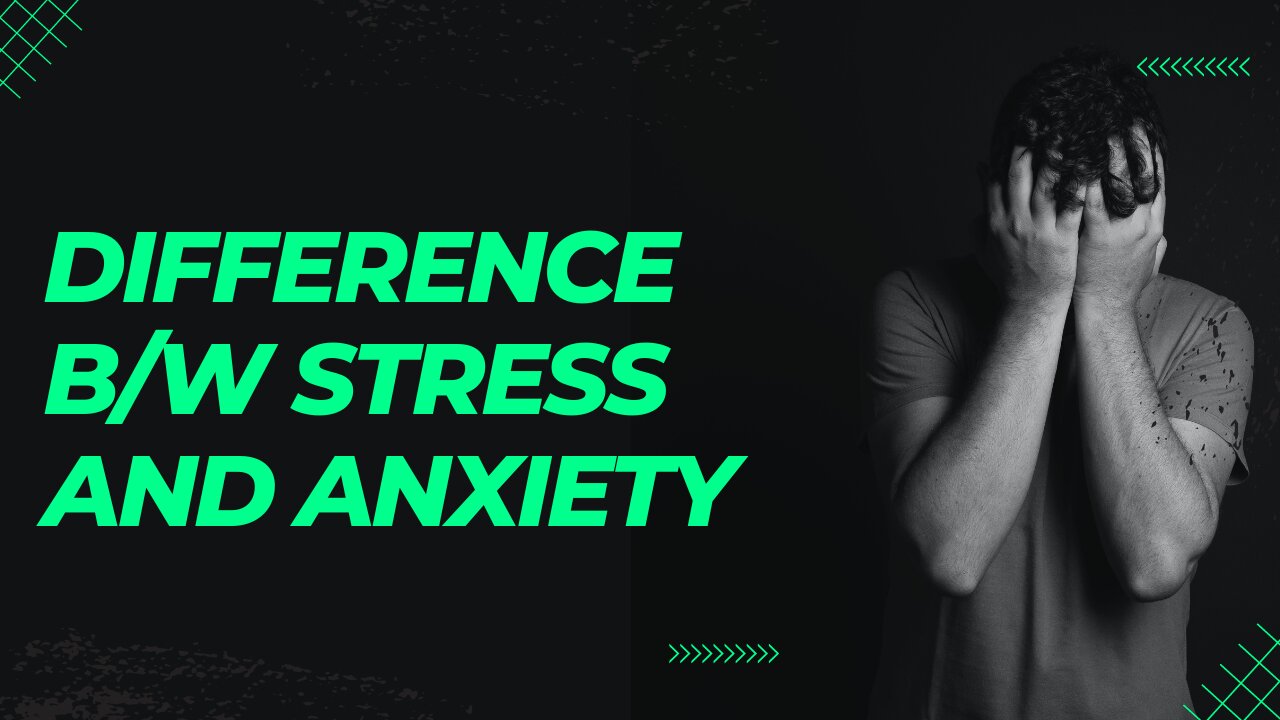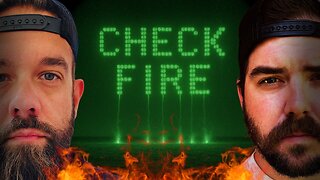Premium Only Content

5 Ways to Tell the Difference Between Stress and Anxiety
5 Ways to Tell the Difference Between Stress and Anxiety
What is Stress?
Stress is a perfectly normal bodily reaction to a change, demand, or threat. Physical, emotional, or mental responses are all possible.
Stress can be both beneficial and damaging. Good stress motivates you to complete tasks, do them well, and focus on activities. Chronic stress is harmful to one's mental and physical health.
What is Anxiety?
Anxiety is normal as well. It is a state of fear, tension, or nervousness. For example, you may become anxious before a big test, fearing that you will fail.
Anxiety and stress are frequently associated, with stressful events or experiences eliciting feelings of anxiety.
Am I experiencing Stress or Anxiety?
Here are some indicators that can help you differentiate between anxiety and stress:
1. Stress is mostly external.
While negative self-talk, a pessimistic attitude, or a sense of perfectionism can cause stress, it is usually triggered by something external. Anxiety, on the other hand, is a more internal experience. It is your reaction to stressors. If you remove those stressors but still feel overwhelmed and distressed, you are most likely suffering from anxiety.
2. Anxiety is an excessive reaction to a given situation
Certain situations, such as making funeral arrangements for a loved one, are stressful for anyone. Anxiety is a more disproportionate reaction. If your anxiety and distress in a given situation are unusual, excessive, or far exceed the reactions of others, it may be anxiety rather than stress.
3. Anxiety can cause you to be unable to function
Anxiety disorders can render you completely incapable of performing routine tasks. An anxiety disorder may be the underlying issue if you are distressed to the point of being unable to work or having a panic attack.
4. Anxiety causes feelings of dread and fear of things that haven't happened
Stress is a reaction to an event or the pressure you feel. Anxiety can be completely internal and unrelated to anything in reality.
5. Specific symptoms may signify an anxiety disorder
If you have certain, specific symptoms, this may indicate that you have an anxiety disorder or that your problem is more serious than simple stress. A social anxiety disorder may be indicated by high levels of stress and anxiety in social situations.
-
 37:46
37:46
Stephen Gardner
8 hours ago🔥Trump NEVER expected THIS WIN as Schumer has EPIC MELTDOWN!
12.3K24 -
 2:02:41
2:02:41
Inverted World Live
5 hours agoNASA Engineer Says Trillions of Shape-Shifting, Cloaked Devices are Hidden on Earth| Ep. 83
15.9K6 -
 3:12:37
3:12:37
TimcastIRL
5 hours agoGOP Councilman DOUSED IN GAS, Set ON FIRE In Virginia, Suspect In Custody | Timcast IRL
215K75 -
 2:32:23
2:32:23
The Quartering
5 hours agoOn To The Big Bosses! Act 2 Of Expedition 33
44.9K4 -
 LIVE
LIVE
SpartakusLIVE
7 hours agoTiger Blood RESTOCKED and 30% off w/ code SPARTAKUS30
507 watching -
 24:58
24:58
Law&Crime
7 hours ago $1.38 earnedSecond Note Leaves Disturbing Clues in New York City Killings
22.3K5 -
 1:36:57
1:36:57
Badlands Media
23 hours agoAltered State S3 Ep. 39: Earthquakes, Energy Games & the Fall of the Narrative
52.6K13 -
 2:04:07
2:04:07
Due Dissidence
12 hours agoCharlie Kirk's GAZA LIES, Caitlin Clark Stalker, Palantir Goes Hollywood - w/ Kyle Matovcik | TMWS
27K7 -
 2:54:43
2:54:43
I_Came_With_Fire_Podcast
13 hours agoAmerica First, Trump Threatens China, Your Friendly Neighborhood Illegal, EPA Gets a "W"
29.1K4 -
 LIVE
LIVE
Geeks + Gamers
4 hours agoGeeks+Gamers Play- MARIO KART WORLD
149 watching